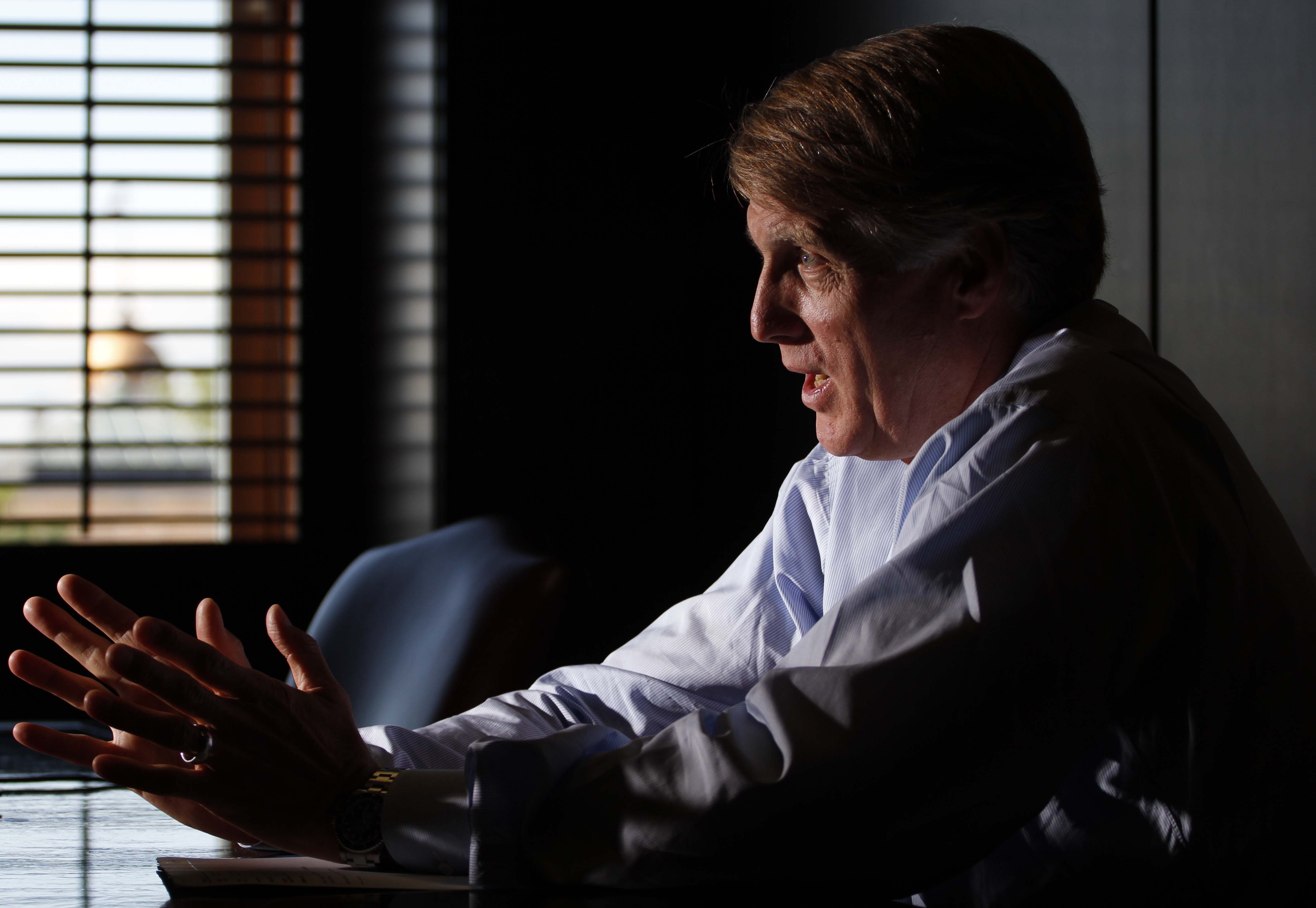Unum shareholder payback: The tortoise wins again
Friday, January 1, 1904
Unum on Thursday trumpeted the success of its conservative business model, which has continued to deliver steady returns and rising profits for the Chattanooga-based insurer in spite of a spotty job market.
Shareholders have returned the favor. Unum's stock has jumped 40 percent over the past year as the company boosted dividends and bought back more than a fourth of its stock.
"We grew the businesses we targeted for growth, generated strong profitability in our core businesses and maintained a solid financial foundation while delivering on our commitments to customers and shareholders," Tom Watjen, president and CEO of Unum, told shareholders at the company's annual meeting in Portland, Maine. "Discipline does matter."
Watjen, who finished his 10th year as Unum's chief on April 1, said he was proud to serve "a noble cause" as head of a disability insurer that emphasizes getting injured employees back to work.
"We paid out over $6 billion of benefits to individuals and their families, which help them at a critical time in their lives," Watjen said. "We helped over 230,000 individuals return to work, and return to work in a way that allows them to get back into the workforce and again, do the things that they want to do to help support themselves and their families."
In addition to helping injured employees across the nation, Unum also gave back to its own shareholders through stock buybacks and an ever-growing dividend.
The company at its annual meeting announced an 11.5 percent increase of its quarterly dividend, which will pay out 58 cents per share each year starting in the third quarter of 2013. Unum has nearly doubled its dividend since it began aggressively raising it in 2007, and this marks the fifth consecutive year that the insurer has raised its quarterly payment to shareholders.
In another, separate effort to boost its per-share earnings and return capital to investors, Unum has also repurchased about $2.3 billion of its own stock since it began a share buyback program in 2007, reducing its outstanding shares by a remarkable 26 percent.
Those moves helped protect the company from would-be takeovers during the recession, during which time traditional growth became a challenge. The company can grow organically either by signing up new corporate clients, which then offer Unum's disability benefits to its employees, or from natural work force growth at existing corporate clients. During the recession and continuing into the present, most companies have held off from hiring many new workers and many actually shrunk their work force, which eliminated one of Unum's traditional revenue streams.
As a result, the company has pursued a strategy that grew earnings per-share by 5.7 percent in 2012, even as overall revenue and income remained flat or faltered.
"There's no doubt we faced a lot of challenges, whether it's the competitive dynamics, whether it's the low interest rates, whether it's the soft economy," Watjen said.
Even so, Unum still reported revenues of $10.5 billion in 2012. In the first quarter, the company brought in $2.6 billion in revenue and earned $212.6 million in net income. Those figures should grow as the economy recovers, officials believe, because Unum's existing clients will begin hiring new employees, who will automatically become Unum customers.
No matter what happens, Unum and its competitors still have a long way to go before the disability market is saturated, Watjen said. There are still plenty of customers out there. One in three individuals will become disabled over their lives with a condition that will keep them out of work more than six months, according to Unum's statistics.
"And unfortunately, almost 70 percent of Americans and 90 percent of British citizens don't have disability insurance," Watjen said.
But Unum doesn't chase business for the sake of business, executives reminded shareholders. Revenue is nice, but not if it turns into losses. So the insurer instead has chased steady, disciplined profitability, said Rick McKenney, chief financial officer for Unum.
"The temptation to expand outside of your sweet spot or your market to get yield is something that we are not subject to, we are not reaching for," McKenney said.
Whether it comes to investments, cash on hand or acquisitions, slow and steady wins the race at Unum.
"Steady is important in the things we do," McKenney said. "And it comes back to the discipline that we have out there, year in and year out, serving our customers well, doing a good job at it, and making sure that the underpinnings of the company are in good shape."
The company also announced that Kevin P. McCarthy, chief operating officer of the company and CEO of its Unum US operating unit, intends to retire in the first quarter of 2013. He will step down from his role as CEO of Unum US on July 1, while continuing as COO of Unum group until 2014. Michael Q. Simonds, current chief operating officer of Unum US, will succeed McCarthy as CEO.
Shareholders voted on several key items at the annual meeting, including the first step in a process that will result in the annual election of all directors on the company's board. Separately, more than three-quarters of shareholders symbolically approved the executive pay package that rewarded Watjen with a 12.9 percent increase in total compensation to $13.8 million.
Unum's stock finished the day at $27.56 per share, down three cents.
Contact staff writer Ellis Smith at esmith@timesfree press.com or 423-757-6315.
